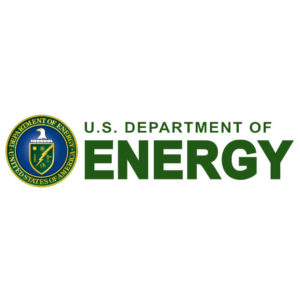 The U.S. Department of Energy (DOE) has announced plans to spend up $625 million over the next five years to establish two to five multidisciplinary Quantum Information Science (QIS) Research Centers in support of the National Quantum Initiative.
The U.S. Department of Energy (DOE) has announced plans to spend up $625 million over the next five years to establish two to five multidisciplinary Quantum Information Science (QIS) Research Centers in support of the National Quantum Initiative.
The National Quantum Initiative Act, signed into law by President Trump in December 2018, established a coordinated multiagency program to support research and training in QIS, encompassing activities at the National Institute of Standards and Technology, the Department of Energy, and the National Science Foundation. The Act called for the creation of a total between four and ten competitively awarded QIS research centers.
America continues to lead the world in QIS and emerging technologies because of our incredible innovation ecosystem. The National Quantum Initiative launched by the President, including these new research centers, leverages the combined strengths of academia, industry, and DOE laboratories to drive QIS breakthroughs,” said Chief Technology Officer of the United States Michael Kratsios.
To further advance that effort, DOE’s Argonne National Laboratory announced that it had launched a new, 52-mile testbed for quantum communications experiments, which will enable scientists to address challenges in operating a quantum network and help lay the foundation for a quantum internet.
The Department’s planned investment in QIS Centers represents a long-term, large-scale commitment of U.S. scientific and technological resources to a highly competitive and promising new area of investigation with enormous potential to transform science and technology.
The aim of the Centers, coupled with DOE’s core research portfolio, is to create the ecosystem needed to foster and facilitate advancement of QIS, with major anticipated benefits for national security, economic competitiveness, and America’s continued leadership in science.
Each QIS Center is expected to incorporate a collaborative research team spanning multiple scientific and engineering disciplines and multiple institutions. Centers will draw on the resources of the full range of research communities stewarded by DOE’s Office of Science and integrate elements from a wide range of technical fields.
Applications are expected to be in the form of multi-institutional proposals submitted by a single lead institution. Eligible lead and partner institutions include universities, nonprofit research institutions, industry, DOE national laboratories, other U.S. government laboratories, and federal agencies.
Total planned funding will be up to $625 million for awards beginning in Fiscal Year 2020 and lasting up to five years in duration, with outyear funding contingent on congressional appropriations. Selections will be made based on peer review.




